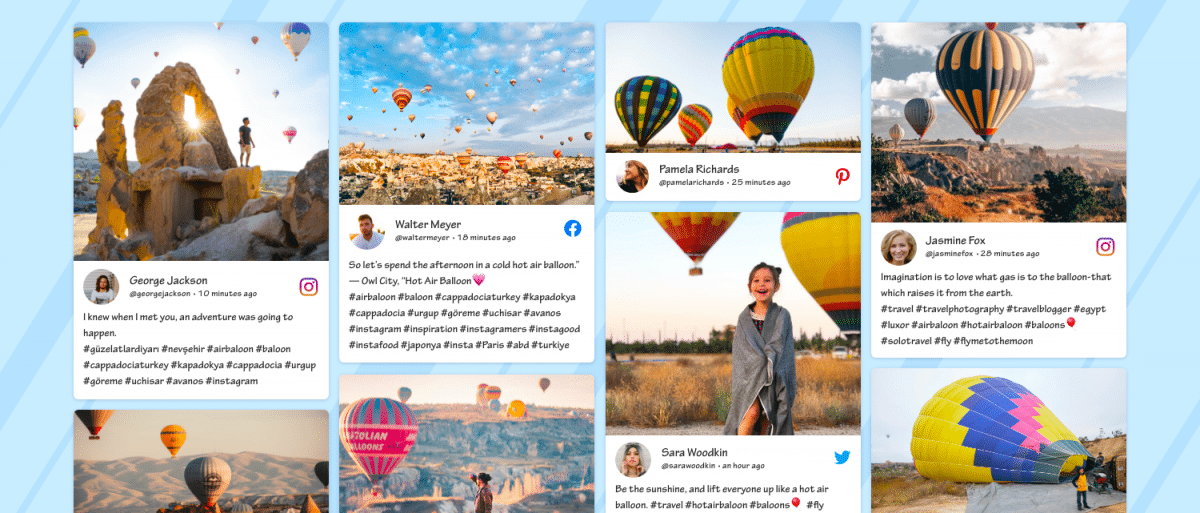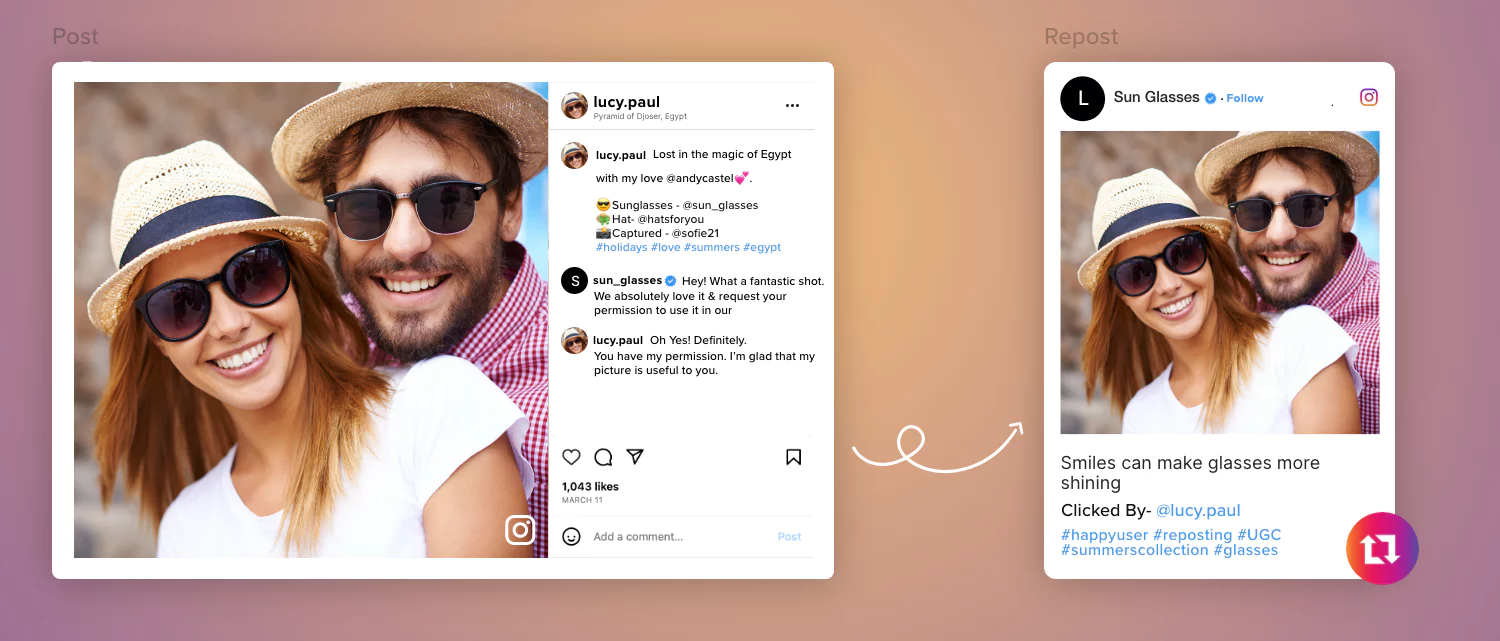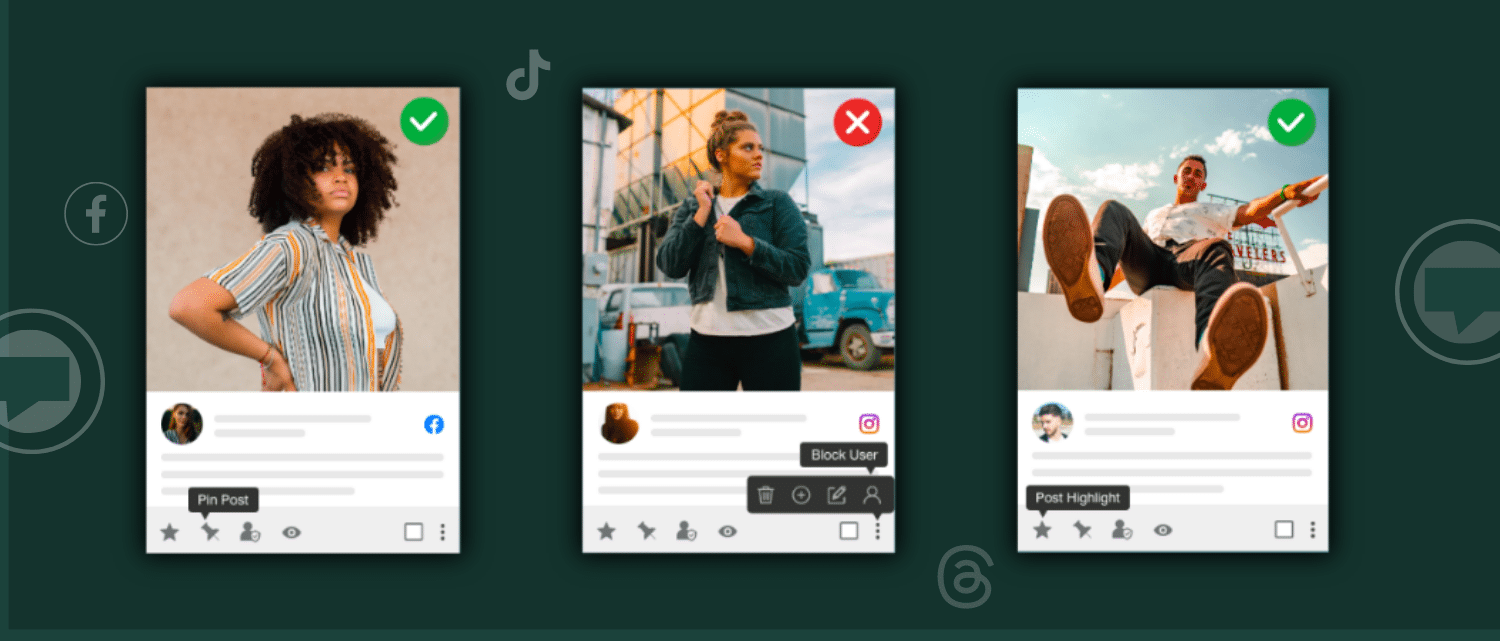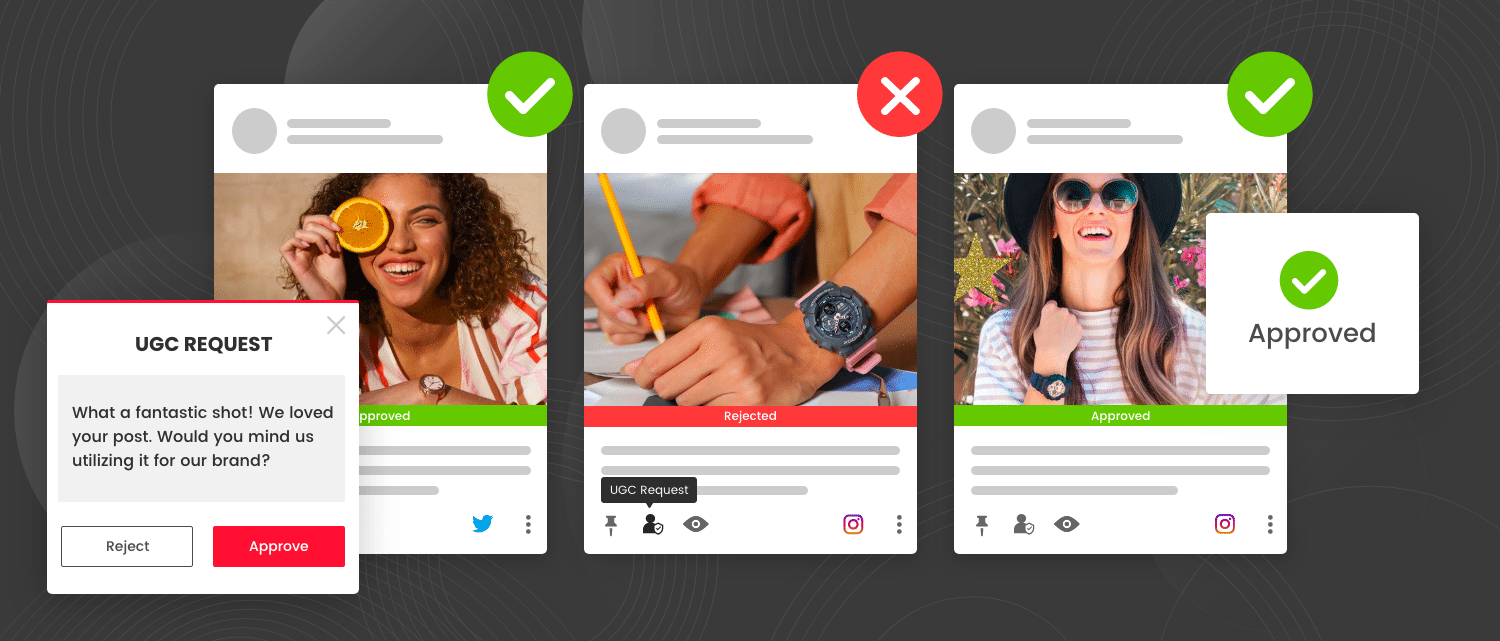Read summarized version with
Since the times when social media came into existence, ordinary people have been sharing their pictures, thoughts, and memories on social media platforms, creating a plethora of User-Generated Content.
Brands, not much far behind the race, buckled up their belts to capitalize on this highly valuable content generated by their users for their promotions and advertisement.
Be it Starbucks or Coca-Cola, almost every brand, big or small, managed to win the marketing game and campaigns that benefitted from user-generated content, as it provides the extensive endorsement of the branded products.
But sometimes, the brands fail to keep a balance between the User’s social content and its usage. This invites chaos for the brands as with time, users are getting much sophisticated and aware of their content rights.
This blog will help you with a better understanding of these social media content rights, why are they important, and how to fairly deal with them.
Social Media Content Rights- The Explanatory Words
Social media platforms such as Facebook, Instagram, etc., are the big pools of User-Generated Content, i.e. the content created by the users worldwide. It plays a crucial role in the rise of marketing strategies of the brands.
Brands have started leveraging this unique UGC for authentic and valuable advertising. But the point is, “Is it OK to use the user’s content?”

And, that’s where social media content rights come into play.
Rights possessed by the users for their social media content, which allow users to have legal copyright on the content created by them, are known as social media content rights.
According to social media content rights, brands/companies cannot use the content created by the users without their prior consent.
They give users the power to safeguard their content from any infringement issues and to protect their rights of content privacy.
Why Is It Important To Focus On User’s Social Media Content Rights
User-generated content is free, but it is crucial to know that it cannot be used freely.
Certain laws safeguard the rights of the content creators according to some specific terms and policies.
Using the content for the purpose of generating profit, makes the brands fall into the pool of legal troubles such as content infringement, copyright issues, privacy issues, and much more.
For this reason, brands and marketers should consider seeking user’s consent before reusing their content for their own promotions and advertisements.

Acquiring user’s permissions will help the brands to maintain their dignified image in the market, build a trustworthy relationship with their users and keep their legal team away from any such troubles that might ruin their work.
We now know that as a user, you always hold the copyright of the items/content that you post on various social networks such as Instagram and Facebook, and no one can use it without your permission.
However, there exist some exceptions to copyright which come into play when it falls under the category of fair dealings.
Get Social Media Content Rights With Taggbox-Rights Management
Turn Your Users Into Brand Advocates With Content Rights
Start Free TrialExceptions To Copyright
There are certain exceptions to copyright that allows anyone to use your generated content without your permission.
These exceptional laws in the US are known as the Fair Use Doctrine.
It includes 4 main factors that should be considered to determine the case of copyright issues.
1. The purpose for which the content is used. For instance, any content which is reused for educational purposes is exempted from copyright issues.
2. The nature of the content that you want to copyright. For instance, it is considered to be fair use if you copy any inspirational or educational quote from any textbook and share it with the group.
3. The percentage of the work that is used concerning the entire length or quantity of the content.
4. The impact it holds on the market value of the original content. For example, if reposting the entire content on your feed makes it tough for the content creator to resell it or has a degrading impact on the number of clicks on the original content, then this situation is nowhere to fall under the exceptions of copyright.

Like the concept of Fair Use Doctrine that prevails in the US, many other countries such as India, Australia, UK, Singapore use a similar concept known as Fair Dealing.
It is important, especially at the times when you are working with copyrighted UGC that has originated in another country.
The concept of fair dealing plays a vital role when it comes to reusing the content that is bound by the copyright laws of different countries.
How Marketers Can Fairly Deal With Social Media Content – 4 Easy & Legit Ways
The primary mistake that marketers often commit is that they reuse and repost the user’s content without permission, which drags them to legal troubles.
To stay free from such chaotic situations, marketers need to follow the proper guidelines and ask for permission from the users in a rightful way.
There are certain solutions to deal with social media content rights fairly and legitimately.
Also Read: A Guide to User-Generated Content Rights Management
#1. Determine When To Ask For The Rights
To use the content created by the users on social platforms like Facebook, Instagram, Youtube, Twitter, etc., brands need to ask for permission from their users.
But as stated above, the exceptions of copyrights, there occur certain situations which give rise to doubts and confusions.

Social networks have terms and conditions we all agree upon while creating our account. Most of the networks give permission to the platforms to use the content that is posted on their network.
But it does not mean that the brand can use the pictures posted on social media for the purpose of advertisement.
It needs to ask for proper permission from the photographer or content creator to reuse it for profitable reasons.
#2. Introduce Your Terms & Conditions Clearly
Make sure to introduce all the points of your terms and conditions to the customers, users, and followers before initiating your UGC campaign.
This acts as a proof against any legal troubles that might come your way while repurposing the content generated from the UGC or Hashtag campaign.

You can check how Airbnb Terms of Use for User-Generated Content clearly mentioned their policy for using UGC and how users are giving them permission to use their created content with their particular Hashtag.
#3. Seek Active Permission On Individual Posts Via Comments
Ask for approval from the content creators by commenting on the desired post. You can ask them to add a specific #hashtag once they agree with the terms on the same post. This is known as hashtag consent.
Once the permission is granted, you can reuse the content according to your purpose. But do not forget to give credits to the original composer of the content.
Also, you can send a direct message to the user whose content you want to repost. The message should include the intent of reposting the content and the platform where you want to publish it.
#4. Get Well Documented Permission Using Rights Management Tool
The most legitimate way to get permission is by using a rights management tool. Known as checkbox consent, you provide the users with an authentic and trustworthy platform and acquire their rights legally and rightfully.
With this tool, you can ask for direct consent by explaining to them the reason you want to repost the content along with the terms and conditions.
Once approved, you can repurpose the content. This is by far the best way to ask for explicit permission.
Taggbox, the ultimate rights management tool, helps you acquire user’s rights legally. Using Taggbox Rights Management, you can get the legal proof of the acquired consent and can archive it for future requirements.
Get Started With Content Rights Management Now
Repurpose Social Media Content Happily & Legally
Final Thoughts
UGC is the key to creating a buzz around your brand on social media. It is the mover and shaker of your marketing campaigns.
But sometimes, this results in a bundle of legal issues such as Copyright Infringement, offensive content, degraded image, user’s privacy issues, etc.
To get off from such issues, brands need to understand legal obligations around user-generated content and follow ways to deal fairly with these social media content rights.










